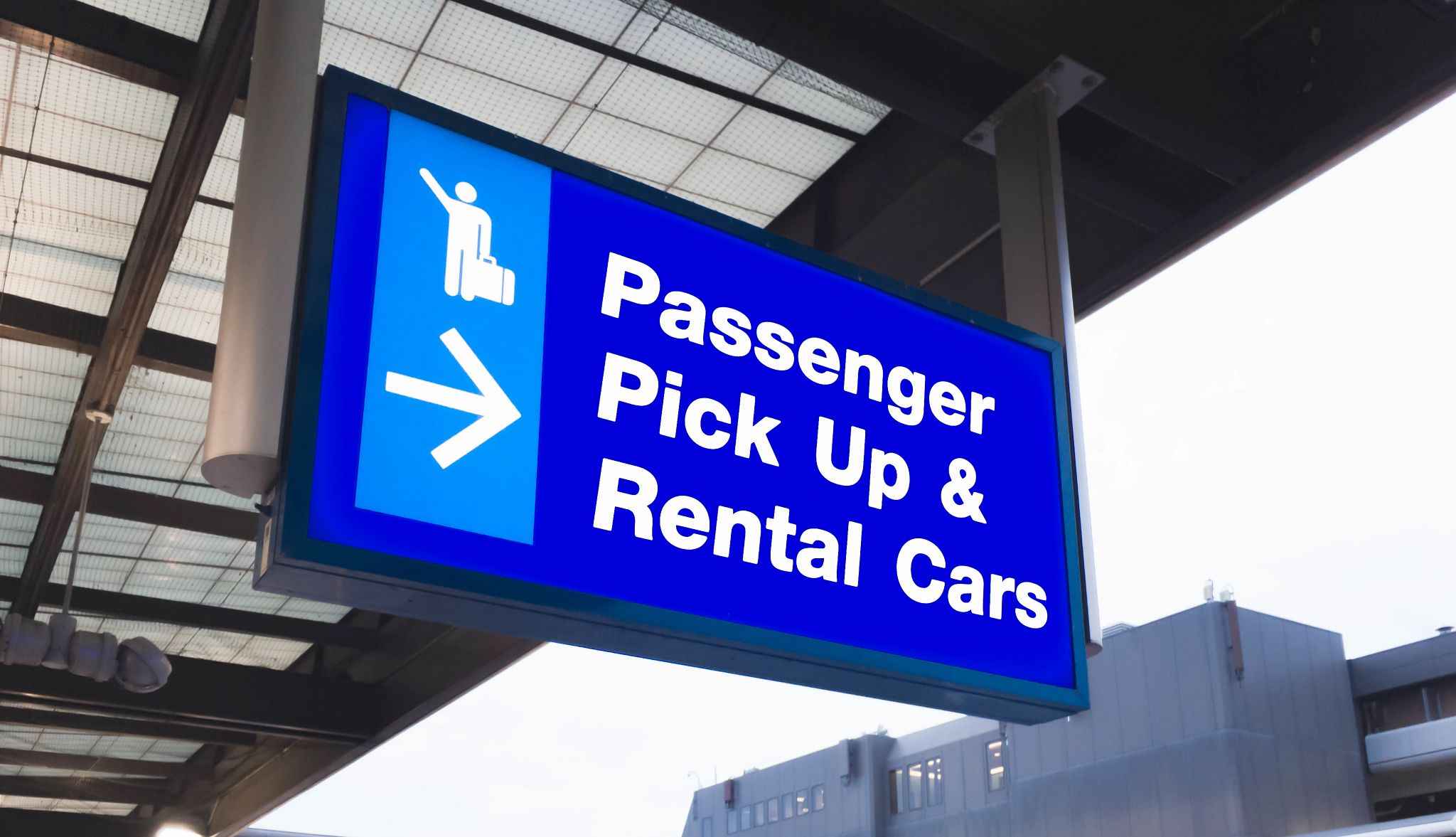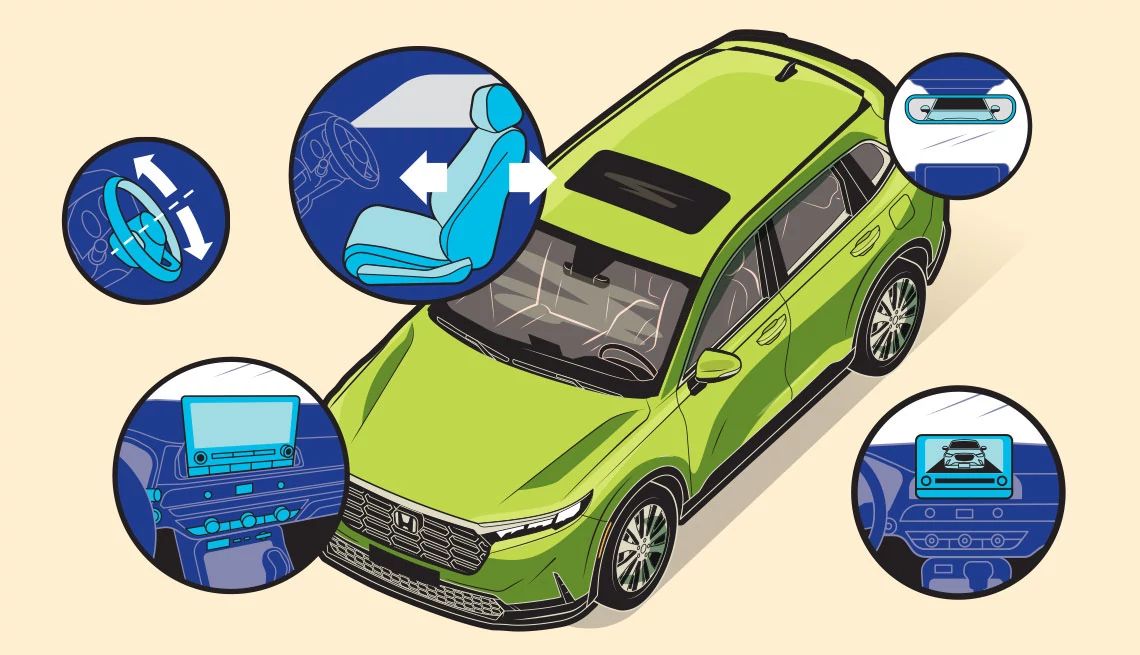AARP Hearing Center
Renting a car during a vacation is commonplace for many older Americans. And sometimes it comes with surprises.
Acclimating to a vehicle with features you are unaccustomed to is just the beginning. Travelers also need to be mindful of built-in costs, hidden fees and usage restrictions.
In many cases, it’s important to remember that you always have a choice as a customer. You’re probably renting a car to remain in control of your schedule. That same can-do attitude can save you unnecessary hassles and charges.
We have one word of warning if you have not rented a car in a few years: The days of major discounts are over. Consumer Reports found in a 2024 survey that its members spent an average of $86 a day, including taxes and fees, or roughly $600 a week.
Here, we walk you through the steps of renting a car and provide 27 tips for older travelers to consider before hitting the road.


BEFORE THE RENTAL
1. Consider the destination
Renting a vehicle in a big city may be more trouble than it’s worth, notes Jonathan Weinberg, founder of the discount car rental aggregator AutoSlash. Weinberg says some public transit systems are cheaper and more relaxing for getting around town than driving or paying for expensive parking. On the other hand, rural areas, such as regions around national parks — popular destinations among older travelers — won’t have much in the way of transit and rideshare options, making a car rental the only real choice, says Gabrielle Schmauderer, who covers cars and travel at the auto-centric online publication Guessing Headlights. Renting a car provides the “security of my time, knowing that I’m going to be able to get around when I need to,” says Schmauderer.
2. Third parties offer more options
There’s not much sense in spending more of your retirement funds on car rentals than you have to. A variety of online third-party platforms, including Booking.com, Expedia and Priceline, offer cheaper prices than booking directly through a car rental company. Booking.com, for instance, has access to more than 45,000 rental locations worldwide, including more than 18,000 in the U.S., says Angela Cavis, the company’s North American director of communications. That reach gives you access to a larger scope of options than going through a single car rental company. “This scale allows customers to easily compare top rental brands side by side, unlocking competitive pricing, exclusive deals, and often perks like free cancellation and 24/7 multilingual support,” Cavis says.
3. Paying ahead may add costs
While older travelers looking to avoid the stress of last-minute planning may prefer the security of locking in a car rental early, they could be sacrificing better deals down the road, Weinberg says. “The nice thing about car rentals is that in most cases you don’t have to put any money down up front,” he says, adding that as long as you didn’t sign a no-cancellation policy, you can then scrub your original reservation and rebook. But Jon Linkov, deputy autos editor for Consumer Reports, warns of potential headaches with rebooking: “Just beware that if you need to make any changes to your reservation, you’ll likely have to do it through that third-party vendor rather than the actual rental car company, which may not be as convenient.”
4. Take advantage of discounts
Among the benefits of being a little bit older are the discounted rates available to you. AARP offers up to 30 percent off car rentals to its members through its program with third-party platform Expedia, and 35 percent if booking through select rental companies. AAA and Costco Travel also offer member benefits for car travel. Weinberg explains that these member-based programs are connected to specific car rental brands. It’s important to watch for better prices at all times. “Remember that a ‘discount’ isn’t always the absolute lowest price — occasionally, a publicly available promo code could beat a group rate,” he notes.
5. Know your itinerary before picking a car
Patience can be its own reward for selecting the type of ride you’ll want for your vacation, says Schmauderer, who emphasizes the importance of selecting a car with enough storage for your needs and the ability to carry equipment. For instance, if you are joining a group of fellow golfers, it’s worth making sure you can fit your clubs in a convenient place like the trunk. Likewise, “If you’re traveling and you want to go to the beach, you want to make sure that you’re able to fit a cooler and your beach chairs in there,” she says. “It applies pretty much anywhere that you want to travel.”
6. You’re not too old to rent a car
Another advantage of being older: While there is a minimum age to rent a car (18 or 21, depending on the state), there is no age limit as long as you have a good driving record. “Whether you’re 55 or 85, the rental companies are happy to hand you the keys,” Weinberg says. However, the rules differ beyond our borders. Some countries and international companies impose age caps between 70 and 80, says Weinberg, adding it’s always a good idea to review restrictions before booking.
7. Consider renting outside the airport
In the convenience-versus-cost battle, 99 percent of travelers will opt to get their rental car from the airport, says John Lovell, president of Travel Leaders Network, which has more than 5,700 travel agency locations in its membership. But there are advantages to heading into town via taxi or rideshare to find a car rental location that may have a shorter line, a better selection of cars and better prices, particularly when traveling to busy airports in major cities like Las Vegas and Boston. “Rentals at airports often include steep surcharges and facility fees that can really jack up the rate,” Weinberg says. “City or neighborhood rental offices, just a few miles away, might offer much lower prices because they don’t charge those airport-specific taxes. It’s worth comparing: You might save 20 percent or more by renting off-airport.” He adds that suburban locations may have fewer open hours than airport counters that handle late-night flights.
8. About renting a car abroad
Renting a car across borders or overseas has a few differences that older travelers seeking a hassle-free vacation should research ahead of time. As noted earlier, older individuals may run into age restrictions. Also, automatic cars are not as common abroad. “Make sure to let them know if you are uncomfortable driving a stick shift,” says Lovell. You might also end up driving a car from a company you’ve never heard of, Lovell and Schmauderer point out. Schmauderer adds that even in countries where drivers are in the “right” seat, the on-road experience is different from that in the U.S. “A lot of the European roads are a lot more narrow,” she observes. “They also have road regulations that we don’t have here.” Weinberg says to remember that an international driving permit is often recommended, and in some countries even required.








































































